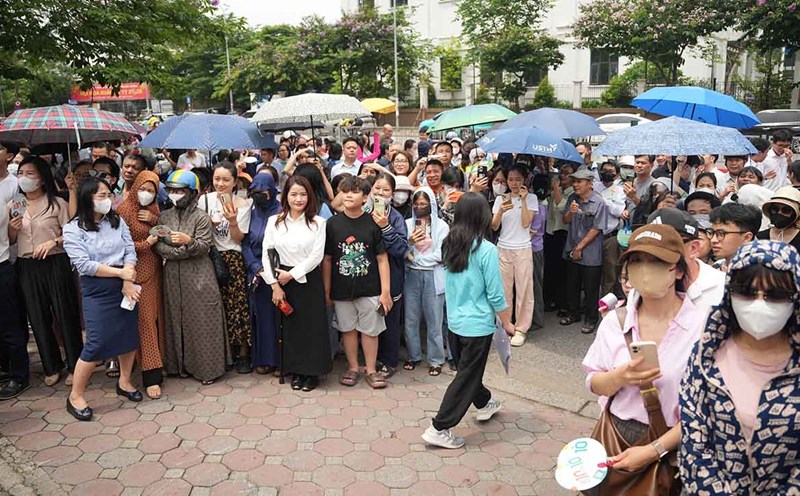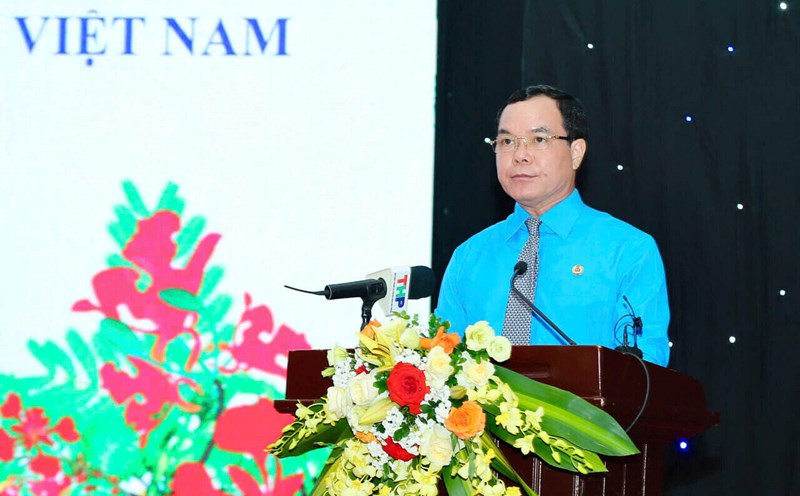Many business households react negatively, avoid policies
From June 1, 2025, according to Decree 70 and Circular 32 of the Ministry of Finance, business households with revenue from 1 billion VND/year in the fields of food, retail, services, etc. are required to use electronic invoices generated from cash registers. Immediately after the regulation took effect, it was noted that some small business households avoided the policy in many different forms.
Most commonly, they are refusing to pay by bank transfer, asking customers not to record transaction content, hanging a "only receive cash" sign or collecting additional fees when customers pay through the bank. Many households have even proactively suspended operations to "taken advantage" of inspection.
In response to the situation, on June 4, the Tax Department of Region I (Hanoi - Hoa Binh) issued an open letter warning about the behavior of concealing revenue, using vague transfer content such as "paying loans", "ship money", "cafe money", or not recording the content... The tax authority emphasized: Revenue for calculating value added tax is the entire amount of money that sellers are entitled to, regardless of payment method. Therefore, the act of concealing transactions does not reduce tax obligations, but instead also poses a risk of being collected, fined, and even prosecuted for criminal liability if there are signs of tax evasion.
Need for a humane approach
According to Mr. Nguyen Quang Huy - CEO of the Faculty of Finance - Banking, Nguyen Trai University, the phenomenon of avoiding electronic invoices and transparent transactions is not a surprise in the early stages of policy implementation. Many traders have not yet adapted to digital thinking. They are afraid of complicated software, high costs, and are especially worried about having to be transparent in revenue leading to tax increases, Mr. Huy analyzed.
According to Mr. Huy, to solve the problem of avoiding invoices and transparent payments, it is impossible to rely only on inspections or administrative sanctions. The tax industry needs to implement a long-term strategy, while placing small businesses at the center of the transformation process.
Mr. Huy proposed three groups of solutions: First, the electronic invoice system must be friendly, simple, low cost, associated with on-site support and clear communication - not to "catch the error", but a tool to protect sellers. Second, it is necessary to closely connect data between banks, e-wallets, digital platforms and tax authorities, apply artificial intelligence and big data analysis to detect abnormalities without widespread inspection. Third, instead of just sanctions, the State needs to create motivation: any household that declares honestly, connects invoices can receive tax incentives, capital support and digital transformation in the first 1-2 years.
"Requiring electronic invoices to connect to cash registers is not simply a technical solution. This is the foundation for building a modern, transparent, civilized financial - tax system and catching up with the global digital economy. But to be successful, it is necessary to approach in a humane way, taking the business household as the center, not the subject of supervision, but as a partner that needs to be accompanied" - Mr. Huy emphasized.
The largest group is most vulnerable
From the perspective of consulting and practical implementation, Ms. Le Yen - CEO of Hanoi Tax Consulting Company Limited (Hanoitax) - believes that the traditional business household group is the weakest link. They account for a large proportion of the adjustment but are the group with the lowest level of readiness. I know how to operate by hand, have never used a printer or software, and have no one to guide me on the spot, so I can easily get into a negative reaction, she said.
Ms. Yen said that the phenomenon of refusing to transfer money and avoiding invoices comes from confusion rather than intentional violation. Many households misunderstand the policy, fear of being charged, leading to a mentality of being avoidable, even closing their doors to wait and listen. If not supported in time, this group could become the biggest bottleneck in the implementation process.
She proposed to postpone the initial penalty, focus on communication and support the handling of the case. The model of "tax agents according to clusters of professions" can be piloted, in which each agent is in charge of a group of business households in residential areas, taking on the role of consulting, technical support and policy communication. At the same time, the tax industry needs to establish a hotline and a consulting group to immediately handle arising situations.
"It is impossible to apply the business model to business households. We need a flexible roadmap and flexible mechanism, but still maintain the goal of transparency and fairness in the long term, Ms. Yen recommended.











